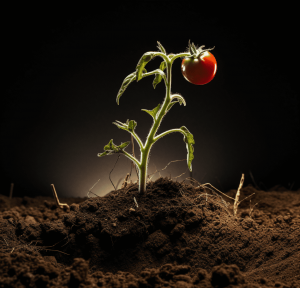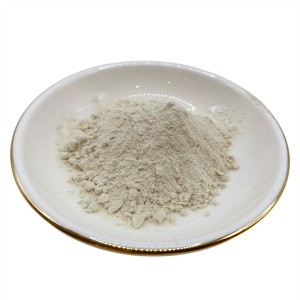Tomato growth and development requires various elements such as nitrogen, phosphorus, and potassium, as well as trace elements such as magnesium, calcium, boron, zinc, iron, molybdenum, and manganese. Among them, calcium is particularly important. Calcium deficiency can lead to various physiological diseases such as flower tail rot, fruit cracking, and poor coloration. Therefore, attention must be paid to calcium supplementation in tomato cultivation to ensure normal growth, smooth flowering and fruiting, extended fruit period, high yield, and excellent quality.
 |
Symptoms of calcium deficiency in tomatoes include stunted growth, thin stems, and drooping leaves. Early symptoms of calcium deficiency include yellowing and wrinkling of leaf edges, which gradually progress to the death of central leaves. |
There are many factors that cause calcium deficiency in tomatoes, including excessive application of nitrogen and potassium fertilizers, dry soil, high solute concentration that hinders calcium absorption, low air humidity leading to excessive water evaporation, and acidic soils with low calcium content. Additionally, fixed calcium in the soil may not be absorbed and utilized by the roots.
To solve the problem of calcium deficiency, it is important to supplement calcium during the tomato fruit expansion and maturity stages. Amino acid chelated calcium has been found to be able to effectively correct a variety of physiological diseases caused by calcium deficiency, increase fruit hardness and storage stability, and improve yield and quality. Adequate water supply, especially during periods of high temperature and drought, is also crucial to promote calcium absorption and prevent physiological calcium deficiency during flowering and fruiting.
 |
 |
Amino Ca Total Amino Acid:25%-30% Calcium in amino acid chelate form:10% Nitrogen:10% Foliar spray:1:600-1000 |
In summary, ensuring appropriate calcium supplementation and water supply during tomato growth and development is crucial to preventing physiological diseases related to calcium deficiency and promoting healthy fruit development.
Post time: Sep-02-2024




